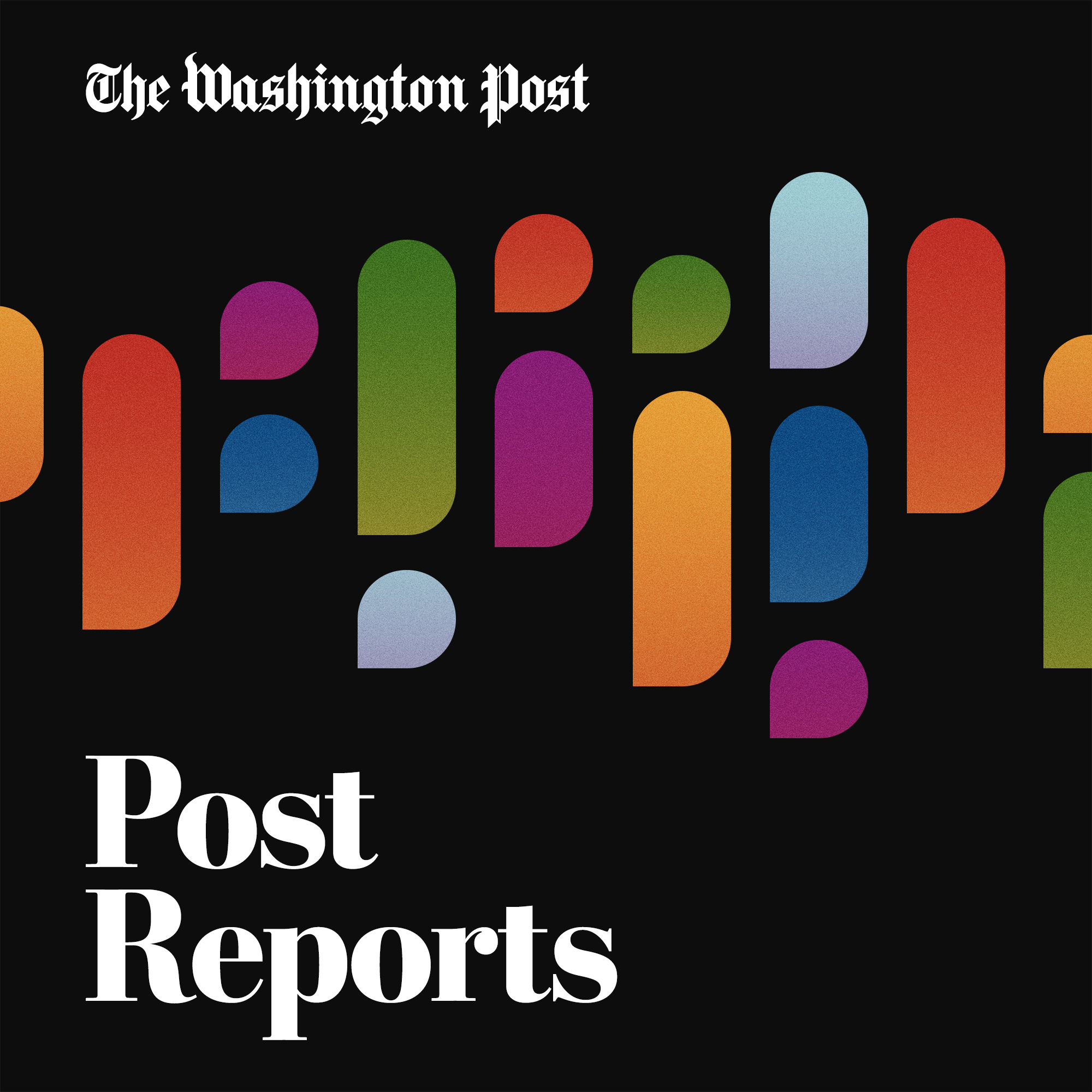

Post Reports
The Washington Post
Post Reports is the daily podcast from The Washington Post. Unparalleled reporting. Expert insight. Clear analysis. Everything you’ve come to expect from the newsroom of The Post, for your ears. Martine Powers and Elahe Izadi are your hosts, asking the questions you didn’t know you wanted answered. Published weekdays around 5 p.m. Eastern time.
Episodes
Mentioned books

7 snips
Feb 22, 2025 • 38min
Deep Reads: Children joked about school shootings. Then the sheriff sent them to jail.
The podcast dives into the alarming rise of school shooting threats and the severe actions taken in response. A sheriff's aggressive approaches in Florida led to mass arrests, impacting children and families deeply. It also examines the troubling reality for kids labeled as offenders after making inappropriate jokes. The emotional trauma faced by young individuals is highlighted, as are the complexities surrounding their experiences in detention. Ultimately, it stresses the need for open dialogues about children's feelings in dangerous times.

77 snips
Feb 21, 2025 • 33min
The Trump honeymoon is ending
Liz Goodwin, a Congressional reporter for The Washington Post, and Dan Lamothe, a Pentagon journalist, join the discussion on Trump's evolving foreign policy. They analyze Trump's newfound alignment with Putin and the backlash against his unpopular policies on Ukraine. The duo reveals how GOP lawmakers are nervously asking Trump to spare their districts from drastic spending cuts. They also dive into the political repercussions of budget cuts and the internal strife within the Republican Party regarding national defense strategies.

27 snips
Feb 20, 2025 • 35min
The rise of the conservative wellness influencer
Kara Voght, a Washington Post reporter, dives into the fascinating world of Alex Clark, a prominent conservative wellness influencer shaking up traditional health narratives. They discuss Clark's journey from fashionista to influential podcaster, the rise of the 'Make America Healthy Again' movement, and how her ideas challenge conventional wellness linked to liberal values. Voght highlights the dangers of misinformation in health advice and explores the intertwining of wellness with conservative politics, illustrating this cultural shift in today’s society.

48 snips
Feb 19, 2025 • 22min
Trump turns on Ukraine
Michael Birnbaum, a seasoned White House correspondent for The Washington Post, delves into the recent U.S.-Russia talks aimed at ending the war in Ukraine, notably highlighting Ukraine's absence. He discusses Trump's troubling statements about NATO and Russia's invasion, and how they’ve affected perceptions in Ukraine and beyond. Birnbaum also raises alarms about the implications of U.S. decisions on European allies and the precarious dynamics of U.S.-Ukraine relations, including military aid and resource demands.

50 snips
Feb 18, 2025 • 21min
DOGE wants access to your tax data. Why?
Jacob Bogage, an economics correspondent for The Washington Post, joins to delve into a controversial request from DOGE for access to IRS data. They discuss alarming implications for taxpayer privacy and the potential risks of corporate interests infiltrating sensitive financial information. The conversation dives into the vulnerabilities of the IRS as a data target, the fallout from possible IRS layoffs, and the urgent need for safeguards to maintain public trust in the tax system amid increasing political maneuvering.

14 snips
Feb 17, 2025 • 22min
Want to live longer? Try fartleks.
Gretchen Reynolds, Exercise columnist for The Washington Post and fitness science expert, introduces the playful concept of 'fartlek' training, highlighting its benefits for enjoyment and efficiency. She explains how varying workout speeds can enhance strength, endurance, and even longevity. Reynolds shares research linking high-intensity workouts to reduced dementia risk, emphasizing that fitness matters more than weight for overall health. She also offers practical tips for integrating fun and effective exercise into busy lives.

12 snips
Feb 15, 2025 • 26min
Can you be a good person at the White Lotus?
Natasha Rothwell, known for her standout performances in "The White Lotus" and "Insecure," dives into her character Belinda's evolution in the new season. She explores the contrasting themes of luxury and human misery depicted on the show. Rothwell discusses the journey of identity shaped by her nomadic upbringing and the importance of diversity in storytelling. She reflects on Belinda’s transformative arc from service provider to guest, highlighting her quest for authenticity in a world filled with affluent characters.

41 snips
Feb 14, 2025 • 35min
Trump versus the courts
Justin Jouvenal, a Supreme Court reporter for The Washington Post, and Colby Itkowitz, a Democracy reporter from the same publication, dive into President Trump's legal battles against the judiciary. They discuss the implications of Trump's defiance of court rulings and the constitutional crises that may arise from it. The conversation highlights how Trump's rhetoric shapes public perception and judicial actions, while also questioning the future of checks and balances if such confrontations persist. Insights into historical precedents add depth to this timely topic.

23 snips
Feb 13, 2025 • 25min
Ronny Chieng on why America needs satire
Ronny Chieng, a comedian and actor known for his work on The Daily Show and his Netflix special, discusses the vital role of satire in American culture. He shares insights on creating relatable humor that bridges diverse perspectives. Chieng reflects on navigating political complexities and the balance between authenticity and success in the comedy scene. He emphasizes how personal experiences and storytelling can challenge power structures while fostering connection and understanding among audiences.

13 snips
Feb 12, 2025 • 29min
The battle over USAID
Missy Ryan, a national security and defense reporter for The Washington Post, sheds light on the turbulent journey of USAID under the Trump administration. The discussion reveals how a freeze on foreign aid has endangered vulnerable populations in places like Mauritania. Ryan explains the growing critiques of USAID's efficiency and its alignment with American interests. She warns of potential global repercussions, including diminished U.S. influence, as the podcast delves into the intricate dynamics of foreign assistance and national security.


